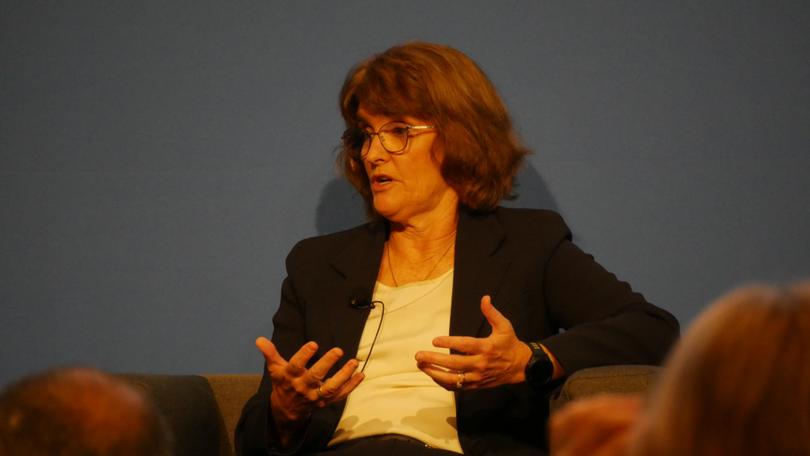Geopolitical tension fears rattle business community
Geopolitical tensions are becoming a key concern of the Australian business community, as President-Elect Donald Trump names a cabinet that is protectionist in outlook and hawkish on foreign affairs.

Geopolitical tensions are becoming a key concern of the Australian business community, as President-Elect Donald Trump names a cabinet that is protectionist in outlook and hawkish on foreign affairs.
That was a concern echoed by Reserve Bank Governor Michele Bullock, Future Fund chief executive Raphael Arndt and Telstra CEO Vicki Brady at a business forum hosted by the Australian Securities and Investment Commission.
Mr Arndt, responsible for the $225 billion Future Fund, said that Mr Trump’s policies would be beneficial to America, but likely at the expense of other countries, as well as global inflation.
Sign up to The Nightly's newsletters.
Get the first look at the digital newspaper, curated daily stories and breaking headlines delivered to your inbox.
By continuing you agree to our Terms and Privacy Policy.“If you look at President Trump’s policies and his appointments in the last few days, what you’re saying is ‘we’re going to protect American business, with tax cuts and deregulation, but also we’re going to do it if necessary, at the expense of other countries: tariffs, sanctions, supply chain re-engineering and if necessary defend it with the military’. So all those things are inflationary for sure, many of them will accelerate growth in the US to the detriment of the world,” he said.
The Reserve Bank Governor reiterated that the Bank was taking a wait-and-see-approach to Mr Trump’s policy specifics but she was concerned about the global response to any tariff war.
“What ultimately happens for Australia is going to be dependent on the responses of other countries In the very extreme circumstances of 60 per cent tariffs on Chinese we don’t know how the Chinese will respond to that. Ultimately, if it’s not good for the Chinese economy, it isn’t good for us either,” Ms Bullock said.
Ms Brady, chief executive of Telstra, had similar concerns about a global trade war, particularly China’s role as a critical component of the global technology supply chain.
“One of the implications we’re thinking about, beyond all the economic pieces, is what it means for geopolitical tensions. That has lots of ramifications, obviously, around supply chains.”
Ms Bullock said global supply chain risks, such as those flagged by Ms Brady generally did not trigger a central bank response, citing the short term energy and food inflation that spiked after the Russian invasion of Ukraine. But in an era where global conflict may be a more common occurrence, there is a danger that inflation become a more persistent threat.
“There’s a risk with not only geopolitical but also risks on climate transition side, that we’re going to get more supply side shocks for inflation,” she said. “That presents an interesting question to central banks, because if you have a series of (inflationary) thematics that goes on for a number of years, at what point you have to respond? We do need to be alert.”
‘I don’t get bitcoin’: Bullock
The panelists rubbished the suggestion that cryptocurrency Bitcoin might become a strategic asset on the US government balance sheet.
“It’s not a currency, it’s not money, it’s being used as some sort of asset class. I don’t understand it - I don’t really see a role for it certainly in the Australian economy or the payments system,” Ms Bullock said.
Mr Arndt suggested creating such a reserve would be counter-productive to the US’s ability to raise debt.
“If I was controller of the world’s reserve currency and I could print of much of it as I wanted and I had a budget deficit as far as I could see, I’m not sure why I’d want a reserve of any currency that I couldn’t control or understand,” he said.
